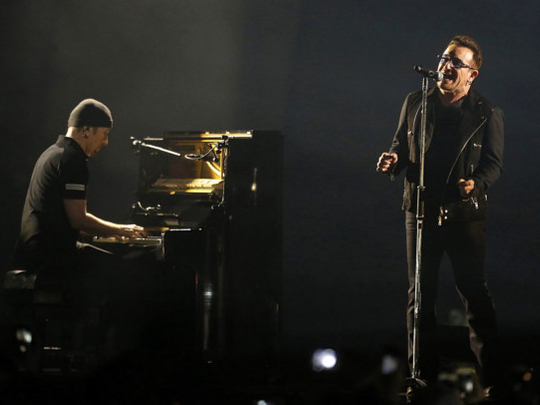
U2 faced such a backlash over its free album that the band apologised, but the Irish superstars claimed vindication on Tuesday as research showed its music dominated iTunes listening.
U2’s Songs of Innocence was automatically sent to the world’s half billion iTunes customers as a promotion for the new iPhone 6, leading to so many complaints that Apple set up a special webpage on how to delete the album.
But research company Kantar Group said that 23 per cent of iTunes users in January 2015 listened to at least one U2 track — far more than second-placed Taylor Swift at 11 per cent.
U2 on Tuesday seized on the survey, saying the figures showed that the band’s strategy had been proven right.
“This is fantastic news,” lead singer Bono said in a statement.
“If these figures suggest that these songs still matter to people, then we’re knocked out. That’s all any songwriter wants,” he said.
Guitarist The Edge added: “We took a big risk but today we can say that the experiment worked.”
Bono had earlier apologised, telling an online forum in October that U2 got carried away due to a “drop of megalomania” and fears that the album would not be heard.
Kantar based its survey on an initial sample size of 2,510. It said that virtually all of the people who listened to U2 last month heard a track from Songs of Innocence.
However, many iTunes customers listen to tracks on “shuffle” mode, and complaints about the U2 album came in part from users who resented that Songs of Innocence entered their libraries against their will.
Stars ranging from Ozzy Osbourne to Sinead O’Connor have lashed out at U2 over the giveaway, saying the deal with Apple — reportedly worth $100 million (Dh367 million) — set a bad precedent for lesser-known musicians who cannot survive by giving out their music for free.











